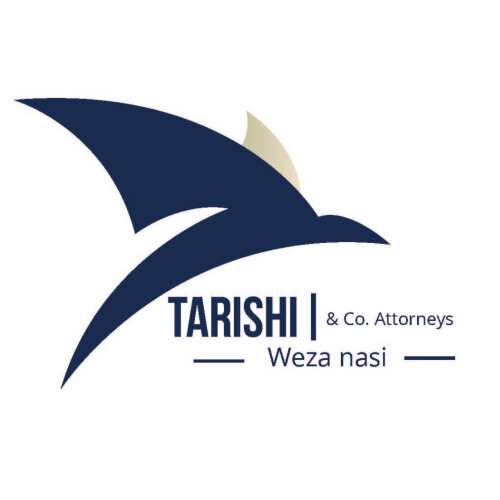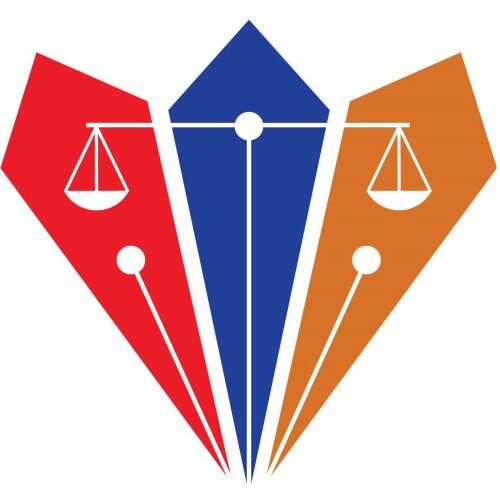Best Sanctions & Export Controls Lawyers in Zanzibar
Share your needs with us, get contacted by law firms.
Free. Takes 2 min.
List of the best lawyers in Zanzibar, Tanzania
About Sanctions & Export Controls Law in Zanzibar, Tanzania
Sanctions and export controls are sets of laws and regulations that govern the movement of certain goods, services, and technologies across borders. In Zanzibar, Tanzania, these laws are enforced to comply with both national rules and international obligations. Sanctions can involve restrictions on trade with specific countries, entities, or individuals, while export controls focus on the monitoring and licensing of certain items, such as sensitive technologies, weapons, or dual-use goods. The government implements these regulations to safeguard regional security, uphold international agreements, and support the national interest.
Why You May Need a Lawyer
Sanctions and export controls can be complex. You may need a lawyer in several situations, such as:
- If you are exporting or importing goods to or from Zanzibar and are unsure whether these items are subject to controls or restrictions.
- If your business or personal activities involve countries or individuals that may be subject to sanctions.
- If you receive notice from authorities about potential violations of sanctions or export control regulations.
- If you want to ensure compliance when handling sensitive technologies, military equipment, or dual-use items.
- If you are facing penalties, fines, or criminal prosecution related to sanctions or export violations.
- If you are a financial institution needing to vet transactions or customers against sanctions lists.
- If you are in international trade and need to draft contracts that adhere to relevant sanctions and export controls law.
Navigating these issues without legal advice can put you at risk of significant penalties, loss of business, and even criminal liability. An experienced lawyer can help identify legal risks, facilitate compliance, and represent you before regulatory bodies or courts.
Local Laws Overview
Sanctions and export controls in Zanzibar, Tanzania are governed by multiple layers of regulation. While Zanzibar has its own legal framework as a semi-autonomous region, it generally aligns with the broader laws enforced by the United Republic of Tanzania. The key aspects to note include:
- The Economic and Organized Crime Control Act: Addresses offenses related to sanctions, including the unauthorized trade in restricted goods.
- Arms and Ammunition Act: Sets controls on the export, import, and transit of military items and weapons.
- The Anti-Money Laundering Act: Obligates businesses and individuals to avoid dealings with sanctioned entities or individuals and to report suspicious activities.
- Customs and Excise Laws: Implement controls and licensing requirements for export and import of various goods, including those subject to international restrictions.
- International Sanctions: Tanzania, including Zanzibar, is a participant in United Nations sanctions programs and must implement any UN Security Council resolutions affecting trade or finance.
Businesses and individuals must be aware that failure to comply with these regulations can lead to administrative penalties, criminal prosecution, seizure of goods, or revocation of operating licenses.
Frequently Asked Questions
What are sanctions and export controls?
Sanctions are government-imposed restrictions that block or limit trade with certain countries, entities, or people. Export controls are regulations that limit or monitor the export of certain goods, services, or technologies, often for reasons of security or public policy.
Who enforces sanctions and export controls in Zanzibar?
Enforcement is handled by government agencies, including customs authorities, the Ministry of Foreign Affairs, and relevant law enforcement bodies. The international sanctions adopted by Tanzania also apply to Zanzibar.
Do UN or international sanctions apply in Zanzibar?
Yes. Zanzibar follows United Nations sanctions and other international obligations adopted by Tanzania. All businesses and individuals in Zanzibar are required to comply with these measures.
What types of goods are subject to export controls?
Commonly controlled items include weapons, military technologies, dual-use goods (items that can be used for both civilian and military applications), chemicals, sensitive electronics, and sometimes cultural artifacts.
Can an individual face criminal charges for violating sanctions?
Yes. Both individuals and businesses can face criminal prosecution, fines, and imprisonment for violations of sanctions or export controls law.
How can I find out if a product needs an export license?
You should consult with an experienced legal advisor or contact relevant government ministries, such as the Ministry of Industry and Trade or Customs, to determine whether your product requires a special license or is subject to restrictions.
What should I do if my business is accused of breaking sanctions or export controls law?
Seek legal advice immediately. A lawyer experienced in sanctions and export controls can help you understand the allegations, respond to authorities, and defend your business.
Are there exemptions to sanctions or export controls?
Certain exemptions may apply, such as for humanitarian aid, medical supplies, or under specific licenses. Legal counsel can help determine if your situation qualifies for an exemption.
Can financial institutions be held liable for sanctions violations?
Yes. Banks and other financial institutions must screen transactions and customers to ensure compliance with sanctions regulations. They can face penalties for failures to comply.
What are the consequences of non-compliance?
Consequences can include fines, confiscation of goods, loss of business licenses, reputational damage, and criminal prosecution for severe breaches.
Additional Resources
- Ministry of Foreign Affairs and East African Cooperation (for information on international commitments and sanctions)
- Zanzibar Revenue Board (for customs and excise regulations)
- Tanzania Customs Services Department (for import and export controls)
- Zanzibar Legal Services Centre (for legal assistance)
- The United Nations Sanctions Committee
- Local chambers of commerce and trade associations
Next Steps
If you or your business is involved in any international trade, finance, or logistics, and you are concerned about sanctions or export controls, the following steps are recommended:
- Consult with a qualified lawyer experienced in sanctions and export controls, preferably one who understands both Zanzibari and mainland Tanzanian law as well as relevant international regulations.
- Gather all documentation related to your import or export activities, contracts, and communications with foreign entities.
- Check whether any of your products, partners, or clients feature on national or international sanctions lists.
- If you receive any notice or inquiry from authorities or a financial institution, respond promptly and seek legal advice before making statements on the matter.
- Implement compliance programs within your organization to regularly screen transactions and business partners against current regulations.
Early legal intervention can help avoid severe consequences and ensure your business or activities remain lawful. Taking informed action and prioritizing compliance are essential for anyone engaging in cross-border trade in Zanzibar, Tanzania.
Lawzana helps you find the best lawyers and law firms in Zanzibar through a curated and pre-screened list of qualified legal professionals. Our platform offers rankings and detailed profiles of attorneys and law firms, allowing you to compare based on practice areas, including Sanctions & Export Controls, experience, and client feedback.
Each profile includes a description of the firm's areas of practice, client reviews, team members and partners, year of establishment, spoken languages, office locations, contact information, social media presence, and any published articles or resources. Most firms on our platform speak English and are experienced in both local and international legal matters.
Get a quote from top-rated law firms in Zanzibar, Tanzania — quickly, securely, and without unnecessary hassle.
Disclaimer:
The information provided on this page is for general informational purposes only and does not constitute legal advice. While we strive to ensure the accuracy and relevance of the content, legal information may change over time, and interpretations of the law can vary. You should always consult with a qualified legal professional for advice specific to your situation.
We disclaim all liability for actions taken or not taken based on the content of this page. If you believe any information is incorrect or outdated, please contact us, and we will review and update it where appropriate.









